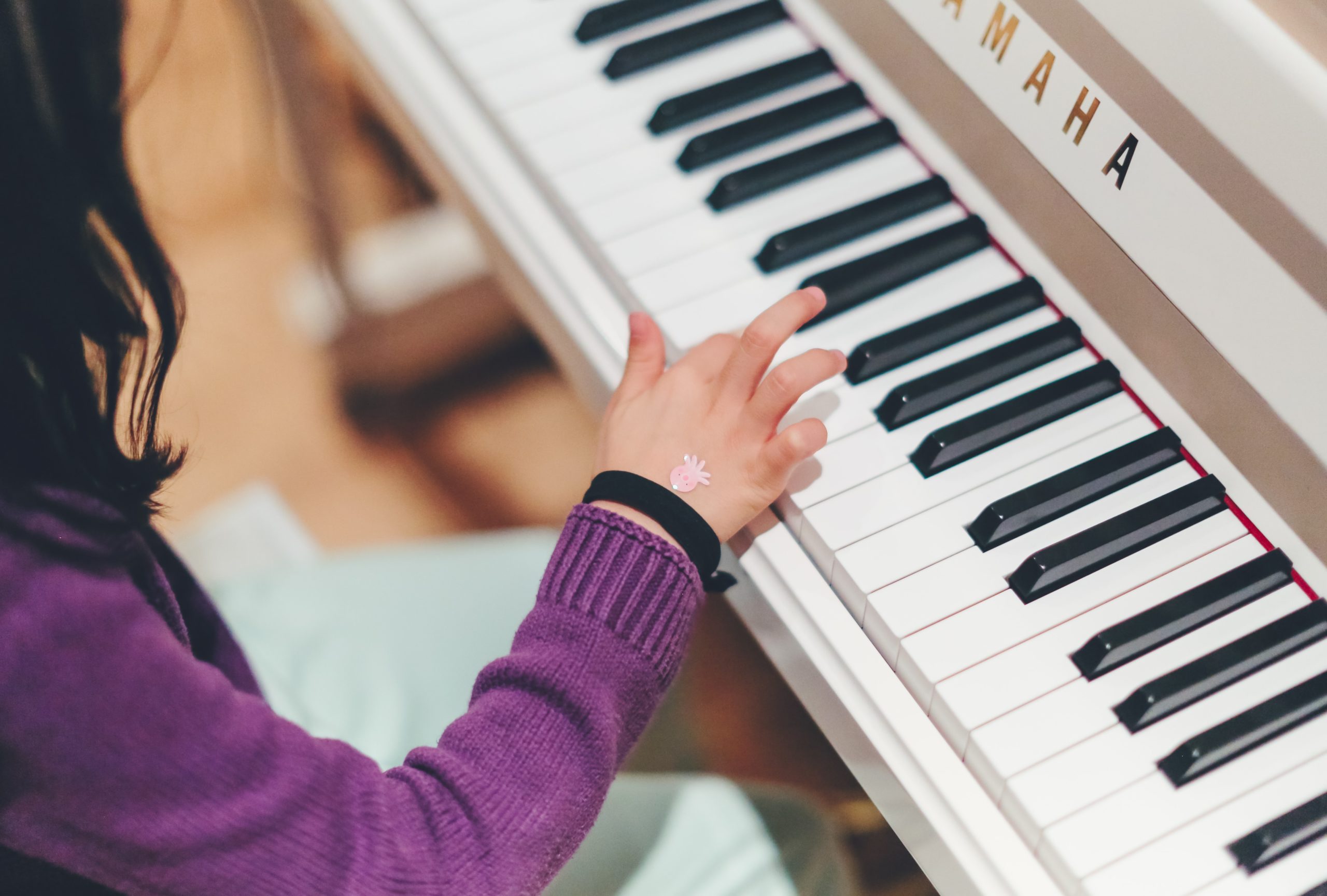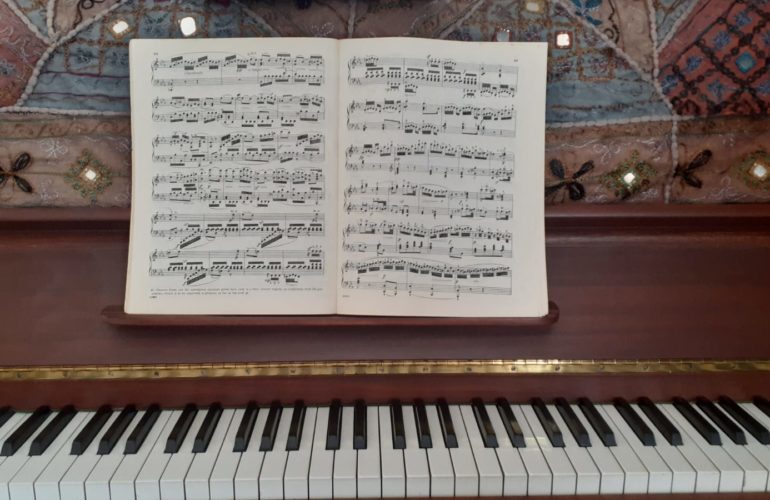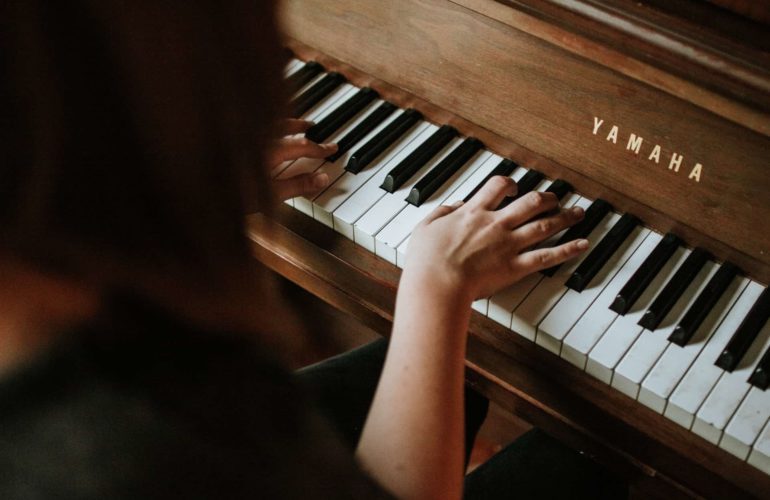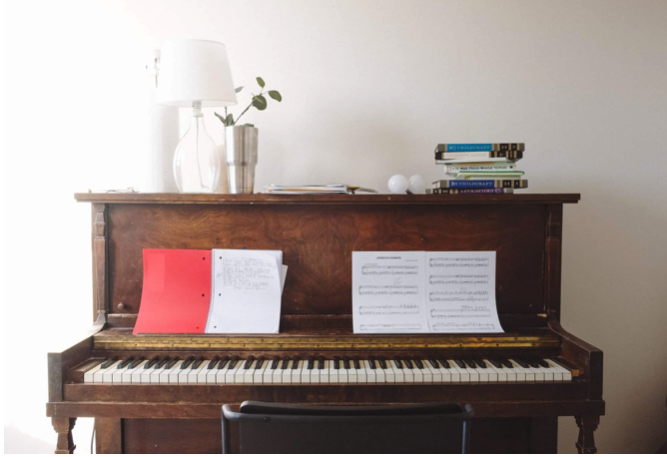It’s often said learning piano is the best place to start for students who want to pursue music but aren’t sure where to start. A lot of children start with piano lessons, and then branch out into different instruments as they develop their tastes and interests. But why? What makes piano a great starting instrument?
We believe all musical instruments are fantastic, but of course as experts on piano service and repair, we have a special appreciation for the ivories! With that in mind, we have a few reasons why we believe people like to start learning music with the piano, and why it’s a common choice for younger kids just getting started on their musical journey.
1. It’s Simple to Grasp
This might seem self-evident, but the way a piano works (at least on the outside) is easy to understand. You push a key, you get a sound! Almost all other instruments do not work like this. With guitar, you need to coordinate both hands to press down the strings on the neck, and then pluck or strum over the body. Wind instruments are the same in that they only work if you combine two actions: finger positions and breathing. So, simply put, with nearly all instruments there is a learning curve for basic technique that must be grasped before a student can even start creating accurate pitch. With piano, the instrument creates accurate pitches for you automatically (unless you need your piano tuned!).
2. It Uses Your Hands Equally
A big part of music is the connection between the hemispheres of your brain, and this is evident through the coordination of the left and right hands. Violin, guitar, saxophone, theremin… instruments of all kinds generally demand the use of both hands at once.
With piano, both hands are used for the same basic task, and this is different to other instruments. Take violin for example; only one hand is ever going to use the bow. This means that while piano does require coordination between the left and right hands, again, the learning curve is not so steep as with other instruments, making it an easier way to build up that coordination between left and right that playing music needs.
3. The Piano Can Create a Wide Range of Pitches
A lot of instruments have relatively narrow pitch ranges. Take a bass guitar for example. It’s likely that all the music you play will be toward the lower end in terms of frequency, and you’ll only be reading music for the bass clef. The piano stretches all the way from the bass clef to the upper reaches of the treble clef. In other words, it can make very low sounds and very high sounds.
This is useful for new students because it teaches them a wider range of music notation, and also introduces them to a wider range of sonic frequencies in general. The piano’s range makes it very versatile, so there’s more room to learn about how lower and higher pitches can fit together.
Perhaps more importantly, this also means that piano players can create harmony and melody at the same time. Because the instrument can create low and high pitches at once with relative ease, most music written for the piano makes use of this, creating a melody and a harmony that supports it. Learning what harmony and melody are and what they can be used for is a huge part of playing music! Being able to create both at once with the piano makes it a great entry point for new musicians, as it’s so important to understand these concepts.
4. It’s Easier to Visualise the Music
There are lots of different ways to think about and visualise music. Over time, a musician will find their own way of understanding or “feeling” the music. But for new players especially, using sheet music is a great way to visualise how a piece of music is constructed. Piano is great for learning sheet music because the way the keys are laid out matches up quite well with a stave of sheet music. It’s not exact, but it’s much easier to see how the keys match up to notes on the stave than with say, a guitar, which doesn’t really use sheet music that often; most guitar players prefer to use guitar tablature.
Looking to Start Playing Piano?
The most important thing about learning music is that it’s fun! If you try piano but feel like another instrument would be more fun to learn, there’s no reason you have to start with piano. It just happens to be our favourite!
If you have an old piano that you want to learn to play, or you want to restore it so that your children can learn to play, talk to us. We’re experts in piano servicing, repair, and maintenance. Feel free to ask us anything you want to know, from the average piano repair cost, to how often a piano should be serviced.




